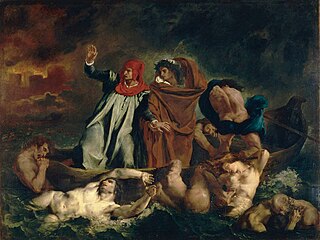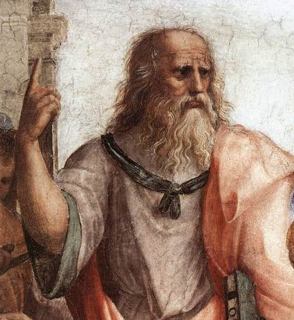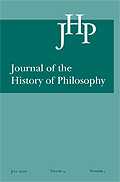 W
WWestern philosophy refers to the philosophical thought and work of the Western world. Historically, the term refers to the philosophical thinking of Western culture, beginning with the ancient Greek philosophy of the pre-Socratics. The word philosophy itself originated from the Ancient Greek philosophía (φιλοσοφία), literally, "the love of wisdom".
 W
WIn the 19th century, the philosophers of the 18th-century Enlightenment began to have a dramatic effect on subsequent developments in philosophy. In particular, the works of Immanuel Kant gave rise to a new generation of German philosophers and began to see wider recognition internationally. Also, in a reaction to the Enlightenment, a movement called Romanticism began to develop towards the end of the 18th century. Key ideas that sparked changes in philosophy were the fast progress of science, including evolution, most notably postulated by Charles Darwin and Jean-Baptiste Lamarck, and theories regarding what is today called emergent order, such as the free market of Adam Smith within nation states. Pressures for egalitarianism, and more rapid change culminated in a period of revolution and turbulence that would see philosophy change as well.
 W
W20th-century philosophy saw the development of a number of new philosophical schools—including logical positivism, analytic philosophy, phenomenology, existentialism, and poststructuralism. In terms of the eras of philosophy, it is usually labelled as contemporary philosophy.
 W
WAdyghe Xabze or Circassian Xabze, alternatively spelled Khabze, Khabza, or Habze, also called Habzism, is the worldview of the Circassian people, a nation native to historical Circassia. The native philosophy was influenced by Hellenic religion and philosophy. Although Khabze was related to Circassian paganism in the past, today, it is used to represent only the customs and traditions of the Circassians.
 W
WAristotle was a Greek philosopher and polymath during the Classical period in Ancient Greece. Taught by Plato, he was the founder of the Lyceum, the Peripatetic school of philosophy, and the Aristotelian tradition. His writings cover many subjects including physics, biology, zoology, metaphysics, logic, ethics, aesthetics, poetry, theatre, music, rhetoric, psychology, linguistics, economics, politics, meteorology and government. Aristotle provided a complex synthesis of the various philosophies existing prior to him. It was above all from his teachings that the West inherited its intellectual lexicon, as well as problems and methods of inquiry. As a result, his philosophy has exerted a unique influence on almost every form of knowledge in the West and it continues to be a subject of contemporary philosophical discussion.
 W
WBuddhist thought and Western philosophy include several parallels.
 W
WThe Western classical tradition is the reception of classical Greco-Roman antiquity by later cultures, especially the post-classical West, involving texts, imagery, objects, ideas, institutions, monuments, architecture, cultural artifacts, rituals, practices, and sayings. Philosophy, political thought, and mythology are three major examples of how classical culture survives and continues to have influence. The West is one of a number of world cultures regarded as having a classical tradition, including the Indian, Chinese, Judaic, and Islamic traditions.
 W
WCogito, ergo sum is a philosophical statement that was made in Latin by René Descartes, usually translated into English as "I think, therefore I am". The phrase originally appeared in French as je pense, donc je suis in his Discourse on the Method, so as to reach a wider audience than Latin would have allowed. It appeared in Latin in his later Principles of Philosophy. As Descartes explained it, "we cannot doubt of our existence while we doubt." A fuller version, articulated by Antoine Léonard Thomas, aptly captures Descartes's intent: dubito, ergo cogito, ergo sum. The dictum is also sometimes referred to as the cogito.
 W
WContinental philosophy is a set of 19th- and 20th-century philosophical traditions from mainland Europe. This sense of the term originated among English-speaking philosophers in the second half of the 20th century, who used it to refer to a range of thinkers and traditions outside the analytic movement. Continental philosophy includes German idealism, phenomenology, existentialism, hermeneutics, structuralism, post-structuralism, deconstruction, French feminism, psychoanalytic theory, and the critical theory of the Frankfurt School as well as branches of Freudian, Hegelian and Western Marxist views.
 W
WGeorg Wilhelm Friedrich Hegel was a German philosopher and is considered the most important figure in German idealism. He is also considered one of the fundamental figures of modern Western philosophy, with his influence extending to the entire range of contemporary philosophical issues, from aesthetics to ontology to politics, both in the analytic and continental tradition.
 W
WIn philosophy, idealism is a diverse group of metaphysical views which all assert that "reality" is in some way indistinguishable or inseparable from human perception and/or understanding, that it is in some sense mentally constructed, or that it is otherwise closely connected to ideas. In contemporary scholarship, traditional idealist views are generally divided into two groups. Subjective idealism takes as its starting point that objects only exist to the extent that they are perceived by someone. Objective idealism posits the existence of an objective consciousness which exists before and, in some sense, independently of human consciousness, thereby bringing about the existence of objects independently of human minds. In the early modern period, George Berkeley was often considered the paradigmatic idealist, as he asserted that the essence of objects is to be perceived. By contrast, Immanuel Kant, a pioneer of modern idealist thought, held that his version of idealism does “not concern the existence of things”, but asserts only that our “modes of representation” of them, above all space and time, are not “determinations that belong to things in themselves” but essential features of our own minds. Kant called this position “transcendental idealism”, holding that the objects of experience relied for their existence on the mind, and that the way that things in themselves are outside of our experience cannot be thought without applying the categories which structure all of our experiences. However, since Kant's view affirms the existence of some things independently of experience, it is very different from the more traditional idealism of Berkeley.
 W
WThe Journal of the History of Ideas is a quarterly peer-reviewed academic journal covering intellectual history and the history of ideas, including the histories of philosophy, literature and the arts, natural and social sciences, religion, and political thought.
 W
WThe Journal of the History of Philosophy is a quarterly peer-reviewed academic journal. It was established in 1963 after the Eastern Division of the American Philosophical Association passed a motion to this effect in 1957. The journal is published by the Johns Hopkins University Press and covers the history of Western philosophy. Time periods covered include everything from the ancient period to modern developments in the study of philosophy. The editor-in-chief is Deborah Boyle.
 W
WPittacus was an ancient Mytilenean military general and one of the Seven Sages of Greece.
 W
WPlato was an Athenian philosopher during the Classical period in Ancient Greece, founder of the Platonist school of thought and the Academy, the first institution of higher learning in the Western world.
 W
WScholasticism was a medieval school of philosophy that employed a critical method of philosophical analysis predicated upon a Latin Catholic theistic curriculum which dominated teaching in the medieval universities in Europe from about 1100 to 1700. It originated within the Christian monastic schools that were the basis of the earliest European universities. The rise of scholasticism was closely associated with these schools that flourished in Italy, France, Spain and England.
 W
WSocrates was a Greek philosopher from Athens who is credited as one of the founders of Western philosophy, and as being the first moral philosopher of the Western ethical tradition of thought. An enigmatic figure, he authored no texts, and is known chiefly through the accounts of classical writers composing after his lifetime, particularly his students Plato and Xenophon. Other sources include the contemporaneous Antisthenes, Aristippus, and Aeschines of Sphettos. Aristophanes, a playwright, is the main contemporary author to have written plays mentioning Socrates during Socrates' lifetime, although a fragment of Ion of Chios' Travel Journal provides important information about Socrates' youth.
 W
WThe Story of Philosophy: The Lives and Opinions of the Greater Philosophers is a 1926 book by Will Durant, in which he profiles several prominent Western philosophers and their ideas, beginning with Socrates and Plato and on through Friedrich Nietzsche. Durant attempts to show the interconnection of their ideas and how one philosopher's ideas informed the next.